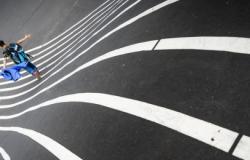Does Europe have its Swagger Back? How Europe can Chart a Liberal Path for the World

Mark Nance argues that Europe can be an effective champion of a liberal world order, but only if it ensures that European integration yields a more social political economy.
As an American academic who occasionally gets to live for a few months in Europe, I always relish the experience. Having recently moved for the year to Gothenburg, Sweden, for example, I find the combination of better schnapps and better public transportation both pleasing and efficient. As a political scientist, travel helps me gain different perspectives on the day’s dominant questions. As an American, that means seeing how the world is responding to a Trump presidency. Not surprisingly, Europeans, especially here in Sweden, are skeptical of Trump: his bombast, his inexperience, his incessant Tweeting of contradictory urges. Americans feel the same.
As a scholar of the European Union, it means hearing Europeans’ assessment of the health of that experiment these days. After a decade that saw the euro-crisis, the migrant crisis, and now Brexit, I expected more of the same doom and gloom and calls for introspection that have come to be common in EU circles. In that telling, Trump and Brexit are mile-markers along an inevitable, illiberal path.
What has stood out to me, however, is a surging optimism regarding the European Union, at least among its leaders. French President Emmanuel Macron and EU Commission President Jean-Claude Juncker recently delivered reform-focused, but optimistic speeches. Juncker declared in his sailing-themed speech that “the wind is back in Europe’s sails,” and with it, Europe’s confidence. As only a French president can, Macron spent two hours laying out his agenda for Europe, because Europe is “our history, our identity, our horizon, what protects us and gives us a future.” “I have no red lines,” he declared, “I only have horizons.” With recent elections having left Angela Merkel weakened at home and, therefore, in Brussels, Juncker and Macron will—must—play a larger role in shaping a post-Brexit future for Europe.
To American ears weary from reckless threats of nuclear war and economic retreat, these hopeful words form an inspiring anthem. If the US President insists on aligning himself with the world’s political strongmen, at least European leaders seem energized to lead the fight for openness and cooperation. Still, knowing the roller-coaster history of European integration, I can’t help but wonder: Is Europe up to the task? Does Europe really have its swagger back? Or is all this movement more stagger than swagger?
I’m convinced Europe can chart a course forward for a liberal order, but it isn’t inevitable and it won’t be easy. If Europe is to lead, it needs to recognize where we are at this moment in history, how we got here, and what it means for the way forward.
Let’s consider for a moment where we are. After the fall of the Soviet Union, the 20th century’s contest of ideologies, as Mark Mazower describes it, seemed to land squarely on the side of democratic capitalism. Fast-forward just short of three decades, and we’re back in a race, but uncertain who the runners are. Civil war continues to rip at the seams left by colonial tailors. A splintered radical Islamic terrorism means small-scale copycat attackers are a consistent, if low-grade threat to many Western societies. Zero-sum nationalism has replaced the cosmopolitan internationalism that once was the professed goal of many countries. The triumphalism of the immediate post-Cold War days are long-gone: the “End of History” now an historical artifact. In its place we find disequilibrium.
If disequilibrium is where we are, how did we get here? Political scientist John Ruggie described the post-WWII transatlantic order as the “compromise of embedded liberalism.” In a nutshell, this meant moving forward with the liberalization of the international system: creating international institutions that would reinforce rules-based, multilateral decision-making as a means of preventing armed conflict and promoting increasingly open trade and finance (think: the United Nations, NATO, GATT/WTO, the IMF). In support of that liberalization, states committed to redistribute some of the gains to compensate those who would lose because of that same openness (think: progressive taxation, national healthcare systems, public education, unemployment insurance). This was no Garden of Eden, but it made life more peaceful and more prosperous for hundreds of millions of people. That’s not bad.
Over time, we lost our balance. We pushed forward with the international side of this bargain while ignoring, even undermining, the domestic side. As Tony Judt worked to his final days to remind us, social democracy was so ingrained in the political economy of developed countries that we forgot we’d built something other than just plain old capitalism. We forgot that post-WWII capitalism was democratic capitalism—a political economic system in which the poor, middle class, and wealthy all had some say in harnessing the power of competition. We began to understand democratic capitalism as the supposedly separate but equal co-existence of political democracy and economic capitalism. More radical still, we came to buy the line that pure capitalism was the only real democracy and that the former begat the latter. We stopped compensating the losers and started blaming them.
Over time, the numbers of those who saw themselves as losing in the Great Globalization Race grew. The gap widened between their camp and those who were undeniably winning. As a result, the “lesser angels” of our collective consciousness—xenophobia, malevolent nationalism, racism—surged again to the fore. And so we land at the current cross-roads, where globalization’s discontents, to borrow from Joseph Stigliz, have taken center stage. The election of Donald Trump, Brexit, and the revisionist foreign policy of Vladimir Putin are just a few of the present-day symptoms of the decades-long negligence of our political economic health. As Dani Rodrik predicted, globalization’s cheerleaders were its greatest threat.
The EU and its Member States can be global leaders only if they chart a path back toward a more balanced, more social political economy. European integration after Brexit must be more than just deeper economic integration: a banking union, common taxation, or common budgets. Nor can it be only about defense, although the sadly wavering support of the US means greater EU security cooperation makes sense. Macron noted that, “Europe will only live through the idea we have of it.” I’d re-phrase that: Europe will only live if the idea of Europe is a Europe for all.
There’s no time like the present. Far-right parties are growing: Alternativ für Deutschland just took third place in German elections; in Sweden, the Swedish Democrats hover around the same in polls; Front National’s Marine LePen again came in second for the French Presidency. In Poland and Hungary, fundamentally illiberal governments have laid bare the EU’s inability to police its members. Meanwhile, Europe’s centrist parties are not performing well. Sheri Berman recently lamented that social democratic parties—long the guarantors of the European Social Model—are collapsing across Europe. In Spain, Mariao Rajoy defiantly argued that the brutal beating of Catalonians seeking to vote on independence was somehow a defense of democracy, an argument that the European Parliament affirmed. For opponents of the liberal order, these trends are good news. For supporters, they should be calls to action.
No doubt some will read this as naïve nostalgia for a post-WWII society that no longer exists. It is not. The global economy is fundamentally different now than it was after WWII. The details of daily work aren’t the same. Gender relations have shifted dramatically. Global supply chains may matter more to production than national capacity. These changes do not undermine the bargain. Rather, they underscore the need for it. We can build a prosperous, stable, liberal order only if we ensure a political economic system that works for the betterment of all: rich, poor, and in between. Europe can lead us there if it successfully re-affirms that bargain.
Macron, in his speech, tried to set an agenda for a somewhat more social Europe. Junker’s speech was less specific in that regard. Instead, he called for Europeans to move forward: “So let’s throw off the bowlines. Sail away from the harbor. And catch the trade winds in our sails.” That’s fine. But the difference between a swagger and a stagger is ultimately a question of balance. If Europe wants to swagger onto the world stage and lead the way forward, it needs first to re-gain the balance of domestic and international politics that brought it so far after WWII. By all means, sail for the horizons. Just don’t lose sight of the millions still on the shore. If you do, you may find that, like Odysseus, you stagger back to a home you no longer recognize.
Mark T. Nance (@mtnance) is currently a Fulbright-Schuman scholar and visiting research fellow at the Quality of Government Institute in the University of Gothenburg’s Department of Political Science. He also is an associate professor of political science in North Carolina State University’s School of Public and International Affairs. He currently is studying how the Great Recession affected the automobile industry, how different states and societies responded to those effects, and how those responses shape politics today.
Image Credit: Giuseppe Milo via Flickr (CC BY 2.0)


